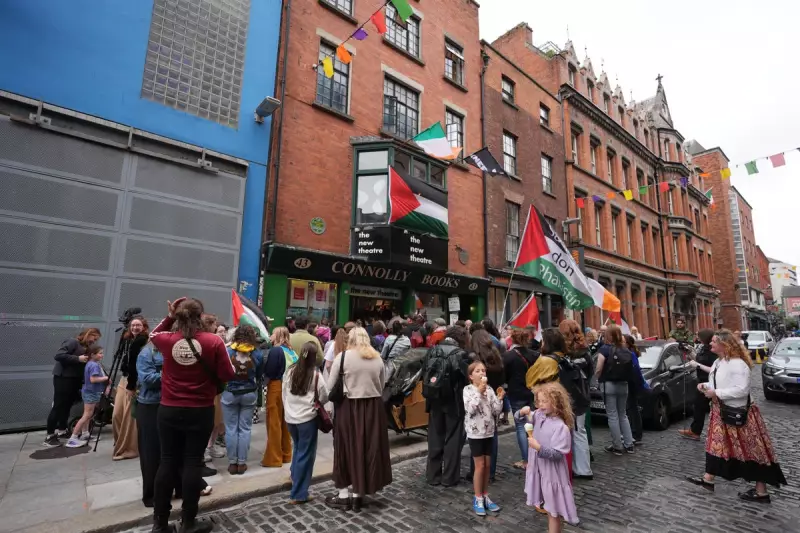
The Irish-language rap group Kneecap, known for their provocative and politically charged music, has found itself at the centre of an international controversy after their London performances were abruptly cancelled. The Belfast-based trio alleges a coordinated campaign of pressure, linked to Israeli intelligence, successfully strong-armed venues into pulling their shows.
The group's management was reportedly contacted by individuals claiming affiliation with the Israeli embassy, who expressed strong opposition to the band's scheduled appearances. This was followed by a deluge of emails and phone calls to the venues, pressuring them to cancel the gigs.
A Chilling Effect on Artistic Expression
The cancellations have sent shockwaves through the music industry and free speech advocates. The band's music, which often critiques British policy in Northern Ireland and expresses solidarity with Palestine, appears to have been the catalyst for the alleged interference. A spokesperson for the group stated the actions were a direct attempt to silence their political message and artistic expression.
This incident raises profound concerns about foreign actors attempting to influence cultural events within the UK. The ability of a foreign state to allegedly dictate which artists can perform in London represents a serious challenge to national sovereignty and the principle of free speech.
From Belfast to Whitehall: A Matter for Officials?
The Metropolitan Police confirmed they were aware of the situation but stated that no criminal investigation was launched, as the cancellations were deemed a matter for the venues themselves. However, the political ramifications could extend further. MPs and free speech organisations are likely to scrutinise the event, questioning what protections are in place for artists facing foreign-backed censorship campaigns.
Kneecap, whose rise has been meteoric since their formation in 2017, is no stranger to controversy. Their unapologetic stance and fusion of Irish traditional music with hip-hop have made them icons for a new generation in Northern Ireland. This latest episode, however, has projected them onto a much larger, international stage fraught with diplomatic tension.





